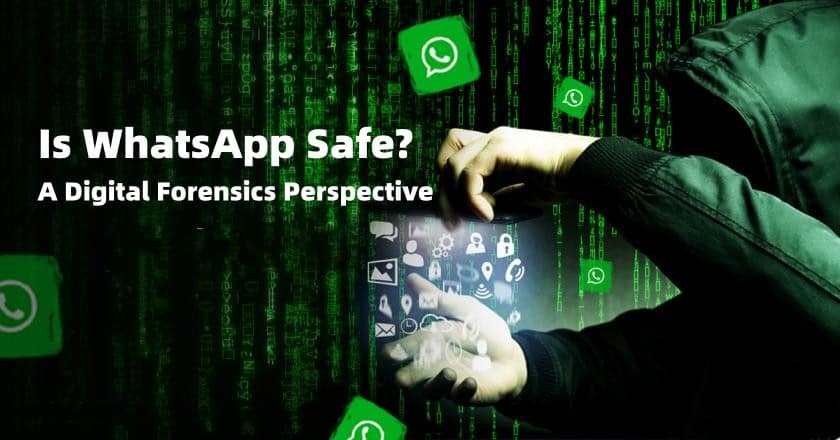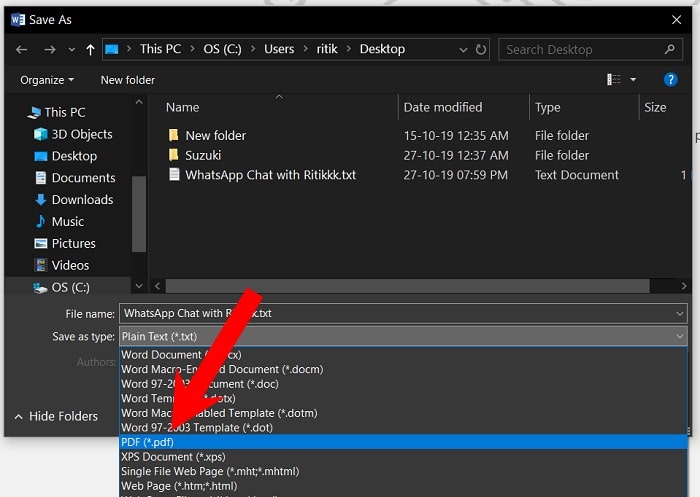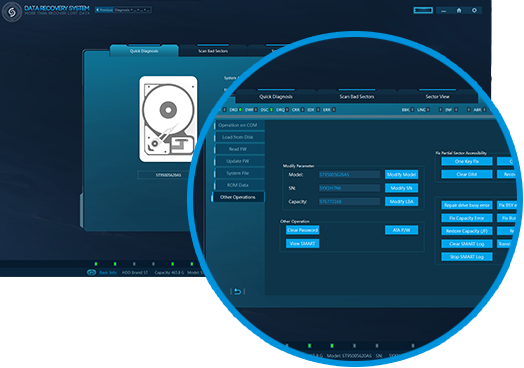WhatsApp is one of the most popular texting apps in the world, letting people instantly talk to each other on different countries. It’s a popular choice for both personal and business contact because it’s easy to use and has a lot of features.
Digital forensics is an important part of cybersecurity because it gives people the tools and knowledge they need to look into leaks, check the accuracy of data, and make sure digital platforms are safe. Expertise in this area is needed to look into how safe chat apps like WhatsApp really are.Through the use of digital forensics, this article seeks to examine is whatsapp safe in great detail. We will investigate if the app offers the security that millions of users rely on it to provide, evaluating its resilience or susceptibility to any cyber attacks.
Is WhatsApp Safe? A Digital Forensics Perspective

-
Content
- WhatsApp Security Features
- Potential Security Risks in WhatsApp
- Digital Forensics: How Investigators Approach WhatsApp
- Case Studies: Forensic Investigations Involving WhatsApp
- Is WhatsApp Safe for Everyday Use?
- Conclusion
-
Content
- WhatsApp Security Features
- Potential Security Risks in WhatsApp
- Digital Forensics: How Investigators Approach WhatsApp
- Case Studies: Forensic Investigations Involving WhatsApp
- Is WhatsApp Safe for Everyday Use?
- Conclusion
WhatsApp Security Features
1. End-to-End Encryption: How It Works and What It Protects
WhatsApp’s end-to-end encryption makes sure that no one else, not even WhatsApp, can access messages transferred between you and the other person. By preventing hackers from intercepting your calls, texts, and even media, this encryption improves information security and keeps digital communications secure from unwanted access.
2. Two-Step Verification and Other Security Measures
- Two-step verification is an optional tool that WhatsApp provides to increase security and give your account an additional layer of protection.
- This feature helps safeguard your account from unwanted access by demanding a password when registering your phone with WhatsApp.
- This ensures that your data recovery procedures are secure in the event of identity theft or loss.
3. Privacy Settings: Control Over Who Can See Your Information
- With WhatsApp, you have the ability to manage your privacy settings and decide who may see personal information like your status update, profile picture, and last saw.
- These configurations are essential for protecting individual privacy and preventing unauthorized parties from obtaining personal information.
- By changing these settings, you may drastically lower the possibility that digital evidence will be used improperly or taken without permission.
Potential Security Risks in WhatsApp
1. Common Vulnerabilities and Exploits (e.g., Phishing, Malware)
Despite robust security features, WhatsApp is not immune to common cyber threats such as phishing and malware. These attacks often come disguised as urgent messages or enticing offers, tricking users into disclosing sensitive information. Such exploits pose a significant risk, making it crucial for users to recognize and protect themselves from these deceptive practices that threaten their information security.
2. Risks Related to Data Sharing and Third-Party Apps
Integrating third-party apps with WhatsApp can introduce risks, especially if these apps are not vetted for security. Unauthorized data sharing through these applications can lead to breaches, exposing personal and sensitive information. Users must be cautious about the permissions they grant to ensure their data recovery processes are not compromised by malicious or insecure third-party services.
3. Issues with Metadata and Its Implications for User Privacy
WhatsApp protects the text of messages, but not the details that tells you who talked to whom, when, and for how long. Metadata like this can show trends and private information that could be used by others to spy on people or do other bad things, which can affect user privacy and digital forensics investigations.
Digital Forensics: How Investigators Approach WhatsApp
1. Methods Used by Forensic Experts to Extract Data from WhatsApp
Forensic experts use advanced methods to get data from WhatsApp, which makes it a useful source of digital proof in crime cases. With these ways, they can get back even removed messages, which gives them important information for forensic research.
2. Types of Data That Can Be Retrieved (e.g., Chat Logs, Media Files, Deleted Messages)
Forensic experts get back data like chat logs, video files, and erased notes that people often forget about. This information is very important for getting a full picture of how someone talks and acts. Forensic data analysis methods are used to figure out what the data means and how it applies to specific cases.
3. Tools and Techniques for WhatsApp Data Analysis
Digital forensics uses a variety of tools and methods to look at WhatsApp data. These tools can break protected files and reveal information that most people can’t see. They can also help you find the digital traces that people leave behind when they communicate.
Case Studies: Forensic Investigations Involving WhatsApp
1. Notable Digital Forensics Cases Involving WhatsApp
A lot of high-profile criminal and police cases have been centered around WhatsApp. Because it’s used by so many people, it comes up a lot in digital forensics, which looks at message exchanges to find important proof. Most of the time, these cases show how complex WhatsApp’s encryption methods are, as well as how easy it is to get around security measures.
2. How WhatsApp Data Was Used in Criminal Investigations
There have been times when WhatsApp info was very important to the result of a case. For instance, chat logs and shared media have helped criminal networks figure out when crimes happened and how suspects were connected to each other. Experts in digital forensics know how to get this data back even if the user deleted it. This makes sure that important data can be found and used in court.
3. Insights into How Safe or Vulnerable WhatsApp is Based on Forensic Findings
Forensic investigations have shown that while WhatsApp provides robust end-to-end encryption, it is not immune to vulnerabilities. The platform’s safety is significantly influenced by user behavior, such as the use of compromised devices or the sharing of sensitive information in insecure environments. These cases offer valuable lessons on the importance of comprehensive digital hygiene and the potential risks of data acquisition by unauthorized entities.
Is WhatsApp Safe for Everyday Use?
1. Weighing the Pros and Cons of Using WhatsApp from a Security Perspective
With over two billion users worldwide, WhatsApp is a favorite option due to its functionality and simplicity. However, security issues cast doubt on its viability for critical conversations, including possible hacking flaws and information security hazards related to third-party applications. “Is WhatsApp safe to use” when private conversations are involved? Even if the program uses end-to-end encryption, users still need to exercise caution when it comes to the surroundings in which they use it and the people they add to their contact lists
2. Tips for Users to Enhance Their Safety on WhatsApp
To maximize safety on WhatsApp, users should enable two-step verification, be wary of suspicious links or messages, and regularly update the app to patch any security vulnerabilities. Additionally, be mindful of backup settings as cloud backups are not encrypted by WhatsApp and can be a point of data recovery for unauthorized users. Educating oneself about these aspects can significantly enhance personal security.
3. Recommendations for Those Concerned with Privacy and Data Security
For those particularly concerned about privacy, consider limiting the app’s permissions on your device, carefully manage who can see your information, and avoid sending sensitive personal information such as passwords or “is WhatsApp safe for sending private photos?” These measures, coupled with a regular review of privacy settings, help in maintaining robust data security and ensuring your interactions remain confidential.
Conclusion
From the standpoint of digital forensics, WhatsApp offers a contradiction between strong security measures and built-in flaws. Because of its end-to-end encryption, which protects user data, calls, and messages from prying eyes outside the system, it serves as a barrier against casual spying. Nevertheless, forensic examinations have shown situations in which WhatsApp’s security measures may be broken, especially in cases when end devices are hacked or information is misused.
Thus, WhatsApp’s safety depends not only on the technical protections the platform offers, but also on how careful and cleanly its users use technology. There is some risk with using the app for everyday conversation, but it is not completely foolproof. Users need to take responsibility for controlling their private settings, knowing what data is shared, and staying aware of how hacking risks are changing.
In the end, WhatsApp is safe to use in general, but the way it is used is what makes it safe or unsafe. Being alert and educated are the most important things that can be done to use its strengths and reduce its risks.





